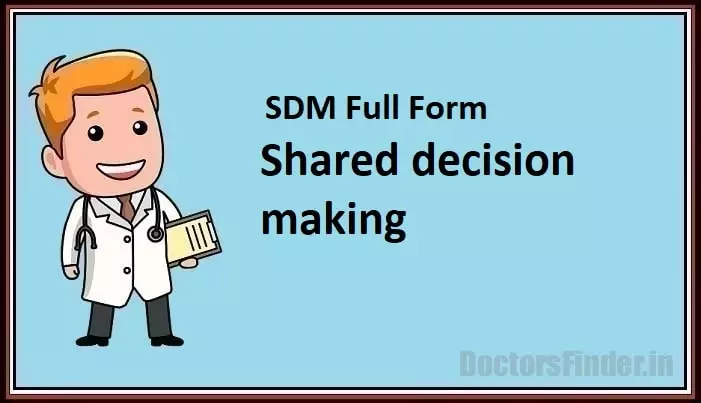The full form of SDM in medical term is “Shared decision making.”
Shared decision-making (SDM) is a collaborative process that involves patients and healthcare providers working together to make informed decisions about medical care. In SDM, patients and providers engage in a dialogue that considers the patient’s values, preferences, goals, and the best available evidence about treatment options.
SDM is a departure from traditional models of medical decision-making, which often prioritize the medical provider’s expertise and recommendations. Instead, SDM recognizes that patients are experts in their own lives and experiences and should be empowered to make choices that align with their needs and goals.
The benefits of SDM are numerous. Research has shown that SDM can improve patient outcomes, increase patient satisfaction, and provide a better healthcare experience. Additionally, SDM can help to reduce healthcare costs by avoiding unnecessary or unwanted treatments and procedures.

SDM is particularly important for patients facing complex medical decisions, such as those with chronic or life-limiting conditions. In these cases, patients often face a range of treatment options with varying risks and benefits. SDM provides a framework for patients to weigh these options based on their values and preferences.
Effective SDM requires patients and providers to engage and commit to the process fully. To support effective SDM, healthcare organizations should provide training and resources for providers, promote patient education and engagement, and ensure that SDM is integrated into clinical workflows and decision-making processes.